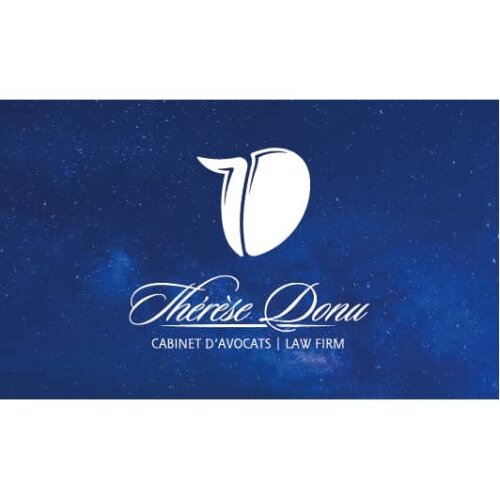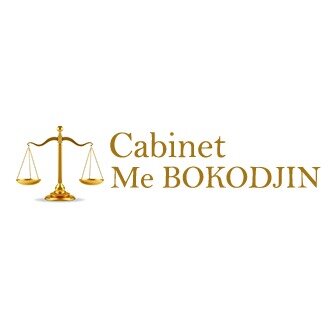Best Estate Planning Lawyers in Lomé
Share your needs with us, get contacted by law firms.
Free. Takes 2 min.
List of the best lawyers in Lomé, Togo
About Estate Planning Law in Lomé, Togo
Estate Planning in Lomé, Togo, involves the arrangement and management of an individual's asset base in the event of their incapacitation or death. This legal area ensures that a person's wishes concerning the distribution of their property and the guardianship of minors are followed. The process typically includes drafting wills and setting up trusts, while adhering to the legal requirements and cultural norms prevalent in Togo.
Why You May Need a Lawyer
There are several common situations where individuals may need legal assistance in Estate Planning in Lomé, Togo:
- Drafting a Will: To ensure your will is legally binding and expresses your wishes clearly.
- Setting up Trusts: For the management and distribution of your assets during and after your lifetime.
- Guardianship Arrangements: Especially vital for parents planning for the care of minor children.
- Minimizing Taxes: Structuring your estate to minimize the tax burden on your heirs.
- Conflict Resolution: Handling disputes between family members related to estate matters.
- Incapacity Planning: Arranging for powers of attorney and healthcare directives if you become unable to manage your affairs.
Local Laws Overview
Estate Planning in Lomé, Togo, is governed by a combination of civil law and customary law. Here are some key elements:
- Civil Code: Provides the legal framework for wills, trusts, and the distribution of an individual's assets.
- Customary Law: May influence inheritance rights, particularly in cases where traditional practices are preferred.
- Inheritance Tax: There may be taxes on certain transfers of property which need to be considered in planning.
- Wills: Must meet specific legal requirements to be valid. Handwritten and signed are preferred formats.
- Intestate Succession: In the absence of a will, intestacy rules determine how property is distributed among heirs, based on familial relationships.
Frequently Asked Questions
What is included in an estate?
An estate typically includes properties, bank accounts, investments, personal possessions, and any other assets an individual owns at the time of their death.
Do I need a lawyer to write a will?
While you can write a will on your own, it is advisable to seek a lawyer's assistance to ensure it meets all legal requirements and reflects your wishes accurately.
What happens if I die without a will in Lomé, Togo?
If you die intestate (without a will), your estate will be divided according to the intestacy laws of Togo. This process may not align with your personal preferences.
Can I change my will?
Yes, you can change your will at any time as long as you are mentally competent. It's recommended to review it regularly and make updates when necessary.
What is a power of attorney?
A power of attorney is a legal document that allows someone else to act on your behalf in financial or healthcare matters if you become incapacitated.
How can I minimize estate taxes?
Minimizing estate taxes may involve setting up trusts, making charitable donations, or other strategic arrangements. Consulting a lawyer can provide tailored solutions.
What is a trust and how does it work?
A trust is a contractual arrangement where a trustee holds assets for the benefit of beneficiaries. It can be used to manage assets and control their distribution.
Who can be an executor of a will?
An executor is a person appointed to implement the terms of a will. It could be a family member, friend, or a professional, trusted to carry out your wishes.
What should I consider when choosing a guardian for my children?
Consider the prospective guardian's values, location, willingness to serve, and relationship with your children when making your decision.
How often should I review my estate plan?
It's advisable to review your estate plan every few years or after significant life events such as marriage, divorce, the birth of a child, or a substantial change in financial status.
Additional Resources
For further assistance and resources on Estate Planning in Lomé, Togo, consider reaching out to the following:
- The Ministry of Justice and Legislation in Togo for legal guidelines and requirements.
- Local law firms specializing in estate planning and family law.
- Financial advisors who can offer insights on asset management and tax implications.
- Community organizations that may offer workshops or informational sessions on estate planning.
Next Steps
If you require legal assistance in Estate Planning, consider the following steps:
- Compile a list of your assets and any existing legal documents related to your estate.
- Identify your Estate Planning objectives and any specific concerns you have.
- Contact a qualified legal professional in Lomé, Togo, with experience in estate planning to discuss your needs.
- Schedule a consultation to explore your options and begin drafting the necessary legal documents.
- Regularly review and update your estate plan to ensure it continues to reflect your wishes and current circumstances.
Lawzana helps you find the best lawyers and law firms in Lomé through a curated and pre-screened list of qualified legal professionals. Our platform offers rankings and detailed profiles of attorneys and law firms, allowing you to compare based on practice areas, including Estate Planning, experience, and client feedback.
Each profile includes a description of the firm's areas of practice, client reviews, team members and partners, year of establishment, spoken languages, office locations, contact information, social media presence, and any published articles or resources. Most firms on our platform speak English and are experienced in both local and international legal matters.
Get a quote from top-rated law firms in Lomé, Togo — quickly, securely, and without unnecessary hassle.
Disclaimer:
The information provided on this page is for general informational purposes only and does not constitute legal advice. While we strive to ensure the accuracy and relevance of the content, legal information may change over time, and interpretations of the law can vary. You should always consult with a qualified legal professional for advice specific to your situation.
We disclaim all liability for actions taken or not taken based on the content of this page. If you believe any information is incorrect or outdated, please contact us, and we will review and update it where appropriate.









